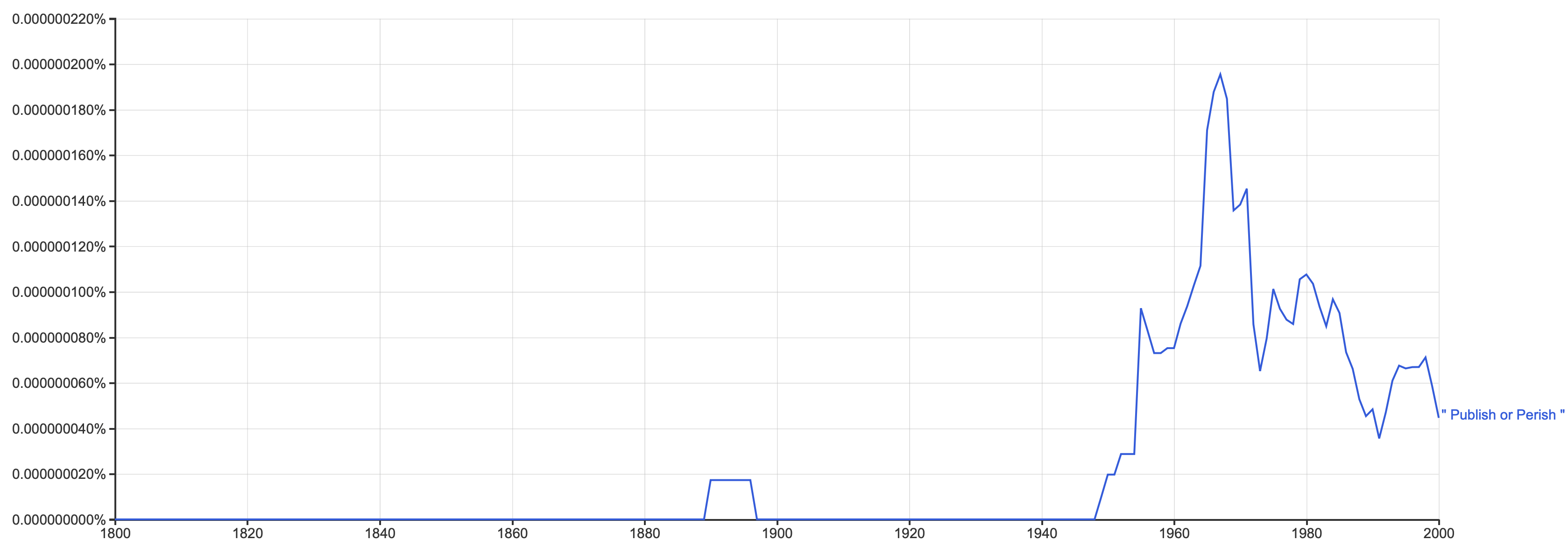Related: What does "Publish or perish" really mean?
The issue of "Publish or Perish" is pretty much an accepted reality in Academia nowadays. When I look at history, however, I see that the Medieval university was far from this - that the average, say, 13th century academic was more invested in passing degree examinations, applying logic against the classics, and mastering pedagogical techniques (how to teach your own students) than in finding something truly new about the world and racing his rivals colleagues to publication.
At what point in history did "Publish or Perish" become a reality for the majority of academics? In no way am I challenging the concepts, only asking about the timeframe. Could an "average" academic in 1800 build a career by gaining advanced subject matter knowledge (e.g. being really really good at integrating by parts, balancing chemical equations, or identifying known species of birds by looking only at their feet), being good at debate, passing a lot of exams, etc., without discovering much (if anything) that was new in his field? What about 1850? 1900? When was the changeover?
My hypothesis would be that there was some sort of watershed event, perhaps similar to (or identical to) the radical change in admission requirements for US undergraduates that happened when large numbers of returning World War 2 veterans all wanted to (and could afford to) "go to college" at the same time.
Jon Custer made a good point about PhD awards exploding in the 1990's. The PhD degree itself might also be related. Since the PhD is inherently a research degree that requires a substantial original discovery (as opposed to other degrees that may be focused more on subject matter knowledge, professional practice, or pedagogy), an answer might consist in discovering when it became rare for someone to gain a professorial appointment without a PhD. This could be an example of Creeping Credentialism - that when everyone and their dog has a PhD, suddenly a PhD is required for all sorts of teaching (or even research) jobs that used to only require an MA or even a BA or below. The question would be, when was that? Could you become an English professor at Harvard in 1765 by walking in off the street with no degree, passing an advanced professor-level literacy test, and completing a six-week accelerated course in Ye Olde Modern 18th Century Best Practices in Contemporary Literature Pedagogy?
From a pop cultural/literary perspective, I was recently reading some of H. P. Lovecraft's fiction from the 1920's and 1930's and was shocked at the frequency at which his academic-background characters intentionally "lose" their research (oops) or at least don't seem to mind that they have lost years of potentially groundbreaking research. At some level I feel that he is intending to imply extreme gravity to the situation - that unleashing the knowledge of eldritch abominations upon journal readers is simply so unthinkable that it's worth shooting one's own career in the foot to prevent it, or whether his characters reflect a different era, one in which research was more of a fun diversion for academics bored of teaching (and thus not truly necessary to gain or keep a faculty post).
Note that I am not asking when regular journal publications or the practice of peer review first developed, I am asking when they became the sine qua non of Academia, that is, when one could no longer reasonably expect to achieve tenure if the only real publication one had was a degree thesis or dissertation.

